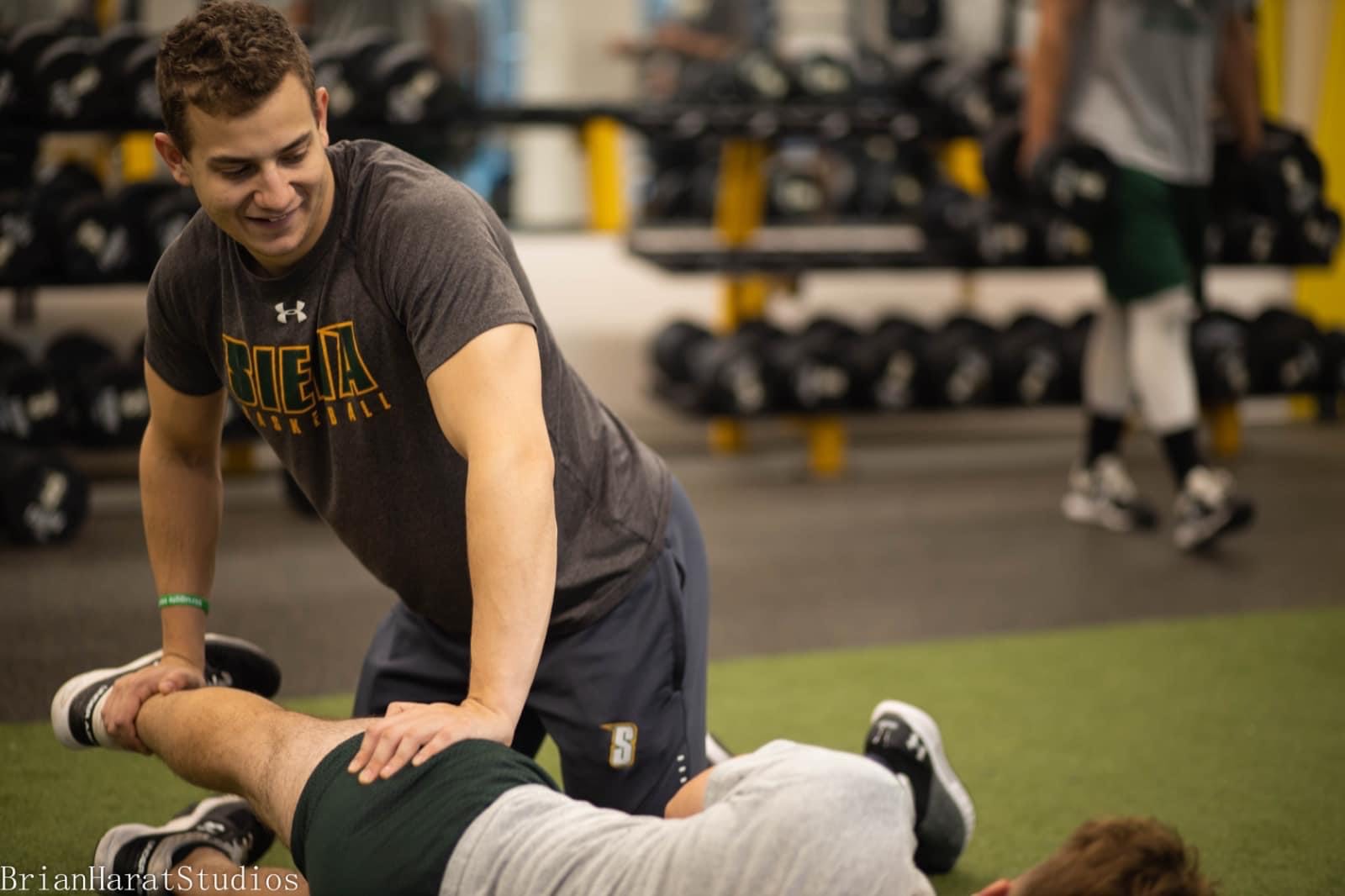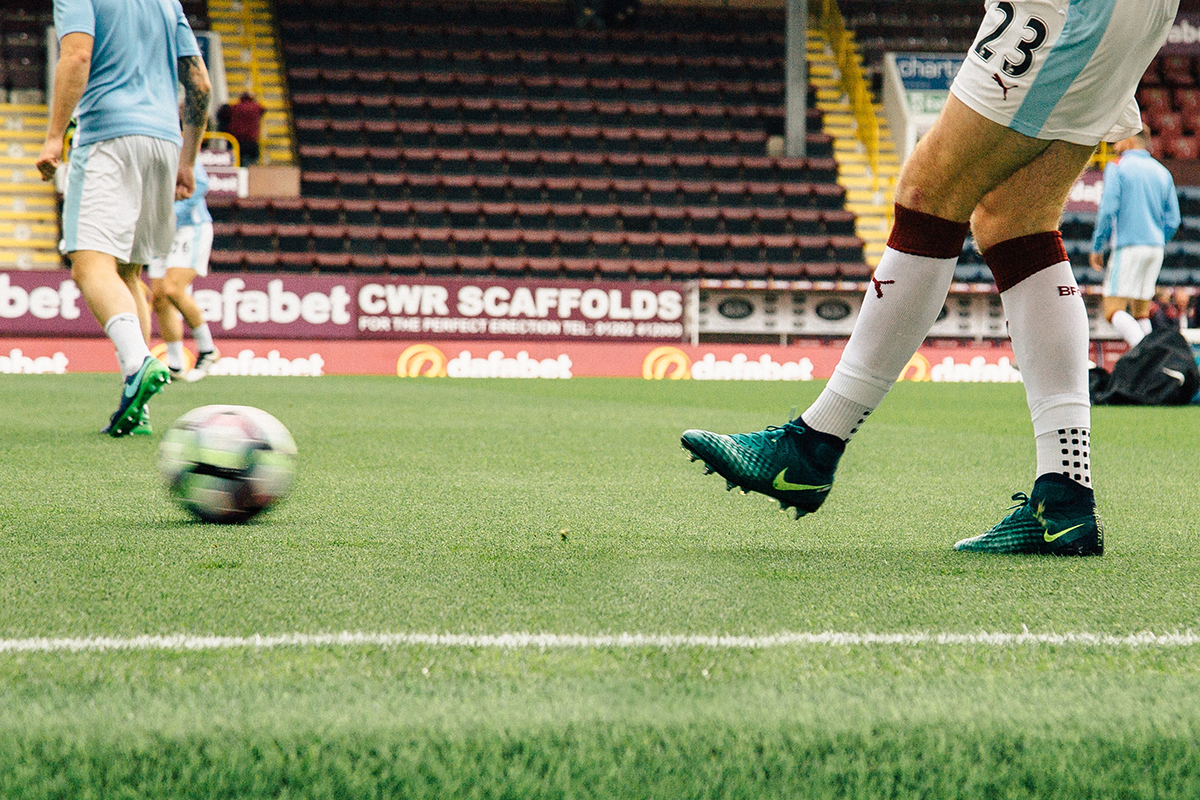Tips for talking to your coaching staff about struggles with anxiety and obsessive compulsive disorder
Student-athletes who have been diagnosed with obsessive compulsive disorder (OCD) or struggle with anxiety can find it challenging to discuss their struggles with their coaching staff. Sadly, stigma surrounding mental health in the athletic domain is still very much alive. There is a real fear that discussing any struggle with the potential to make one look "weak" can lead to feelings of embarrassment, shame, or exile. The fear that discussing anxiety could potentially impact playing time is real. However, we are working diligently to break this stigma! 
Communicating with coaches about mental health issues may not only help you perform your best but also feel your best. Asking for help is the first step in changing the unhealthy stigma around mental health in sport. Luckily, we have seen many professional athletes take to the national stage.
However, initiating and having these conversations is still tough! Here are some tips to get the conversation started and how to discuss OCD and anxiety with your coaches.
Educate
Before starting the conversation, look to gain an understanding of your diagnosis or practice putting into words how you personally experience anxiety. You can locate articles online, books, or consult with a medical professional to find more information about it. Developing an idea of how to express what you are currently experiencing will help your coaching staff understand something they may have no experience discussing. They surely will appreciate you taking the time to help educate them. As their athlete, they want you not only to perform your best but also feel your best.
Timing
When considering the conversation's timing, make sure to choose a neutral and calm environment. Avoid having the conversation on the day of an important game or practice where the coaching staff is preoccupied. Instead, schedule a time when coaches are free to talk at length and discuss the issue.
Initiating the conversation — Vulnerability is strength
Once you feel comfortable and armed with the knowledge of your diagnosis or struggles, it is time to start the conversation. Start off by expressing that you would like to talk about something personal and important. Giving yourself the opportunity to be open and vulnerable can be a scary step. However, it is important to remember that your coach is an ally in helping you not only play well but be at your best in all aspects.
Honesty
Be transparent and straightforward to the best of your ability. Explain how OCD or anxiety affects your athletic performance and use clear and concise language. Try your best to not undermine the importance of this to yourself. Having an honest conversation is the first step to addressing this issue together. Being honest in a situation when power dynamics are at play can be difficult. It is important to remember confidentiality and to remind the coaching staff that this personal mental health information is to remain confidential.
Discuss coping strategies
Lastly, discuss potential coping strategies and possible accommodations that you may need to perform your best. This may include coaches helping locate therapy resources or sending a referral to the counseling center. This may also look like asking for help on specific techniques to cope with anxiety. The coaching staff will appreciate that you are proactive about the situation. This will create open communication that benefits you and the team.
Final thoughts
Speaking to coaches about any topic can be tough, let alone personal struggles with mental health. Finding the strength to initiate conversations about your diagnosis or struggles with anxiety and OCD is an important step in advocating for yourself.
I get it — easier said than done. However, if you arm yourself with knowledge and an understanding of the issue that you are dealing with and come to the conversation prepared, it can be a great way to gain some emotional support and showcase the strength that is within vulnerability. As stated, this is your choice as an athlete to keep this private or make it public. Sure, being the one to ask for help can open the door for your fellow teammates to be more comfortable discussing a mental health issue, but your personal well being is what is important at this time.
Speaking up is not easy, but remember, anxiety and OCD do not define you as an athlete or a person.
About Kyle Glickman
Kyle Glickman is an exercise physiologist, former Division III football player, and a clinical mental health graduate student at Niagara University. With his knowledge on the clinical aspects of mental health, he provides invaluable insights to inform and support collegiate and professional sports organizations with their wellness initiatives. He is a passionate advocate for reducing stigma and increasing awareness about the impact of mental illness in athletes.



